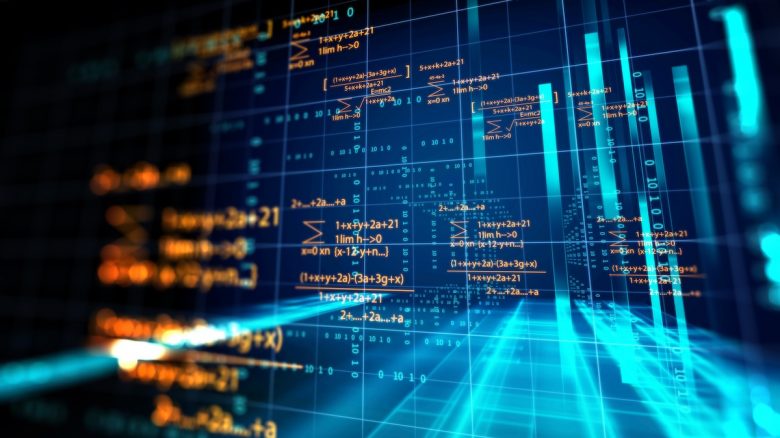
by Nicholas Mitsakos | Investment Principles, Technology, Transformative businesses, uncertainty, Writing and Podcasts
Predictions usually end up being nonsense. We simply draw a trajectory from what we know today. But innovation is a discontinuity. Things are unpredictable because innovation does not come from consensus thinking. It comes from small groups and individuals with a spark of entrepreneurship, intelligence, and vision. One of the fundamental tenets of predicting technology is that most forecasters get things spectacularly wrong.

by Nicholas Mitsakos | Artificial Intelligence, Economy, Green Energy, Public Policy, Technology, uncertainty, Writing and Podcasts
The rewards for innovative success have become enormous and unpalatable, especially among the five technological giants (Amazon, Apple, Facebook, Google, and Microsoft) forcing these firms to spend absurd amounts of money on lobbying in Washington DC. It’s an expensive and wasteful distraction, but essential in this brave new world. If nothing else, it clogs innovation. It is to our detriment – and the world is literally burning while politicians fiddle – and even more disastrously – impede innovative activity. Applying friction to free thinking and new ideas never ends well.

by Nicholas Mitsakos | Economy, Technology, uncertainty, Writing and Podcasts
Brilliance combined with quirkiness and rule-breaking perpetuates an image of daring entrepreneurs and risk-taking capitalists generating outsized wealth. This simply doesn’t happen unless what is created matters. While we might question how much one needs to play a videogame or interact with social media, an advanced society needs advanced solutions to the intractable problems it faces. As John F. Kennedy said, “Our problems are man-made, mankind can solve them, as well.” Perhaps. The harsh reality is that brilliant, hard-working entrepreneurs and thoughtful investors lose much more often than they win. We need their risk-taking and willingness to lose. It’s how we win. We need the benefits technological innovation delivers even if we don’t understand that innovation’s ultimate purpose.

by Nicholas Mitsakos | Artificial Intelligence, Biotechnology, Book Chapter, Technology, Transformative businesses, Writing and Podcasts
Innovation is unpredictable and astonishing – it can address the world’s most critical issues today, from hunger to efficient energy, to devastating diseases. It is also too often misguided, inefficient, and meaningless – creating nothing more than distractions and wastes of time cloaked in an image of technological wonder. Misguided and manipulative business plans sit side-by-side with the groundbreaking disruptions that may address society’s greatest problems.

by Nicholas Mitsakos | Artificial Intelligence, Biotechnology, Financial Technology, Green Energy, Health Care, Investments, Public Policy, Technology, Transformative businesses, Writing and Podcasts
Remarkable things can happen. Or not. Can we solve climate change, food shortage, limited healthcare, and other global stresses – all with TikTok videos? Innovation is unpredictable and astonishing – it can address the world’s most critical issues today, from hunger to efficient energy, to devastating diseases. It is also too often misguided, inefficient, and meaningless – creating nothing more than distractions and wastes of time cloaked in an image of technological wonder. Misguided and manipulative business plans sit alongside the groundbreaking disruptions that may address society’s most significant problems. We don’t have time. Even though there is no clear argument for resources going to a new video-sharing platform or immersive game, that is beside the point. Technology delivers something, nothing else can. It is the only way to find solutions to otherwise intractable and potentially devastating global crises. The freedom to pursue solutions is the essential first step. Letting the best people do their best is still the best policy. It will also generate the best outcome.

by Nicholas Mitsakos | Artificial Intelligence, Finance, Financial Technology, Investment Principles, The Market, Writing and Podcasts
The market is consensus thinking. Performing above average means being different. Simply being different doesn’t define success. Success means understanding what it takes to not only think differently but understand when consensus thinking is wrong and executing and implementing those choices effectively. Doing better (generating superior returns with less overall risk) is difficult. Understanding “what’s really going on” is not a simple formula. It requires different, deeper, and better thinking. Depart from the investment crowd, focus on the factors that are necessary and, in combination, sufficient to make a difference, sustain performance and manage risk. It’s not easy or obvious, but it is superior.

by Nicholas Mitsakos | Book Chapter, Digital Assets, Investments, irrationality, Transformative businesses, Writing and Podcasts
It has taken over 30 years for the overnight sensation of the Metaverse, but now hype, money, and large technology companies are charging in. Most obvious and conspicuous is Facebook’s maneuver to change its name to Meta Platforms and commit $10 billion. Microsoft is making a $70 billion acquisition of Activision to mostly focus on Metaverse platform development. Following on top of these two elephants is tens of billions of dollars of venture capital. The opportunity is considered comparable to the original iPhone. None of the iPhone’s component services – mobile phone, computer, camera, and operating system, were new or distinct. The iPhone revolution is the convergence into a single device (or platform) and, most importantly, the entrepreneurial spark that lit millions of application developers to create value from the iPhone platform.
The Metaverse can best be thought of as the intersection of technologies and users. It combines virtual and augmented worlds, virtual assets, digital assets, and gaming into a single platform. However, there doesn’t seem to be anything too disruptive about the Metaverse or Web 3.0. It’s reasonable to be skeptical, and while there is an economic opportunity within the specific creation of Metaverse assets, the real opportunity remains with the infrastructure, intermediaries, picks, shovels, and “the arms dealers” of global digital war.

by Nicholas Mitsakos | Algorithmic Trading, Artificial Intelligence, Financial Technology, Investment Principles, Investments, irrationality, The Market, Writing and Podcasts
Let the data tell the story. Remove human bias. Intuitive investment ideas may seem compelling, but more often, these ideas are time-consuming, inefficient, and inferior. Data and verification are more effective, and this approach has generated more successful investment strategies. Diverse thinking, diverse data, innovative approaches, and a willingness to be wrong and start over typically bring superior results. Trust the model. Data, discipline, and rigor win more often.

by Nicholas Mitsakos | Economy, Finance, Investment Principles, irrationality, Public Policy, uncertainty, Writing and Podcasts
Risk is higher. Markets are more unpredictable, and valuations more volatile. So, when anyone says “this time it’s different” it usually makes good sense to stop listening. However, these days the markets have given us more frequent and intense volatility. The NASDAQ is down almost 30% so far this year, and shocks from the pandemic, the Ukrainian war, massive central bank interest-rate maneuvers, and China’s zero-covid policy, are all ongoing inputs for turmoil that will continue for some time. Persistent uncertainty creates higher costs of capital and less affordability, weakening business investment, slowing GDP growth, and reducing investment returns. Hyperbolic “this time it’s different” statements are turning out to be true. This time days look darker, uncertainty greater, economic growth lower, vulnerability to additional shocks higher, and investors fear many more dark days to come. More frequent and intense volatility will not be calmed anytime soon. It really may be different this time.









